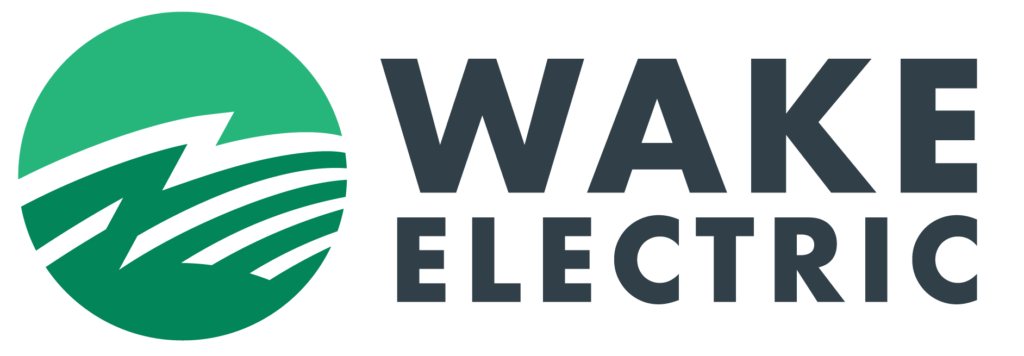May is National Electrical Safety Month and to recognize and celebrate this month, Wake Electric is encouraging every family to hunt for electrical hazards in the home. We encourage you to identify potential electrical safety hazards and make necessary changes and repairs to ensure your family is safe.
Use the following list to identify potential hazards:
Cords:
– Avoid running extension cords across doorways or under carpets as a spark could start an electrical fire.
– Electrical cords should be discarded if they are cracked or frayed and only used according to their ratings for indoor or outdoor use and power needs.
– Three-prong plugs should NEVER be altered to fit into a two-prong extension cord or other receptacle.
– Never nail or staple cords.
– Always unplug cords by pulling on the plug instead of the cord.
Outlets:
– In homes with small children, put safety covers on unused wall outlets.
– Avoid overloading outlets. Plug only one high-wattage appliance into each outlet at a time as not to stress the system.
– If outlets or switches feel warm, shut off the circuit and have them checked by an electrician.
– Listen for sparks or sizzling sounds in outlets or walls, and have them checked by an electrician.
– If you feel a mild shock or tingle when you plug in an appliance, shut off the circuit and call an electrician.
Lights and Lamps:
– Make sure when replacing light bulbs that the lamp’s wattage is appropriate. If you smell a burning or rubbery smell, this may be a sign that the wattage level of the light bulb is too high for the lamp.
– Fluorescent bulbs are cooler and use less electricity, and replacing your incandescent bulbs can help prevent fires.
– Check to be sure that light bulbs are screwed in securely, but not too tight, to prevent overheating.
– Check to see that lamps are placed on level surfaces, away from curtains, carpet and other materials that burn easily.
– Dim or flickering lights may indicate an issue with home wiring or a discrepancy between lamp and light bulb wattage. Check to make sure the bulb wattage is right for that lamp. If it is and lights are still flickering, contact an electrician who will inspect your home’s wiring.
Appliances:
– Make sure all appliances have been tested by a certified product safety organization (like Underwriters Laboratories) and follow the manufacturer’s instructions carefully.
– Appliances that take a lot of power to operate, like space heaters, should be plugged directly into an outlet rather than an extension cord. These appliances may draw more current than the cord can carry; it’s best to be cautious.
– NEVER leave appliances plugged in where they may come into contact with water.
– If an appliance falls into water, DO NOT reach in to pull it out. Turn off the power circuit then unplug the appliance.
– Do not use electric appliances during a thunderstorm. Doing so not only increases your risk of shock, but many appliances are also susceptible to power surges, so unplug them if possible.
– If you experience frequent tripped circuit breakers or blown fuses, contact a licensed electrician who can identify the problem.
Please take the time to survey your home for potential electrical hazards as we recognize National Electrical Safety Month, and contact Wake Electric with questions or concerns.
Quick Links
Recent Posts
- Avoid Bill Surprises with Usage Alerts
- Higher Winter Bills and How Your Cooperative Can Help
- American Heart Month: Supporting Community Safety Through Employee CPR and AED Training
- Wake Electric Requests Members Conserve Energy as Extreme Temperatures Place High Demand on Grid
- Wake Electric Prepared for Winter Storm Gianna, Ready to Respond
